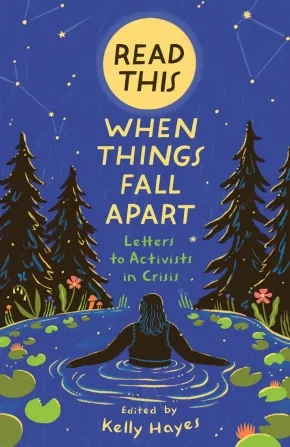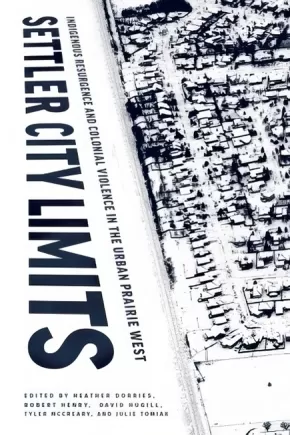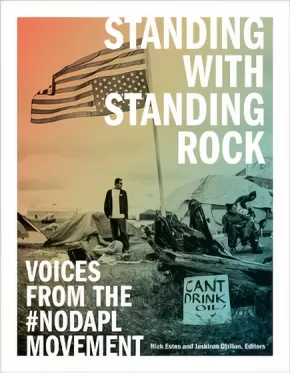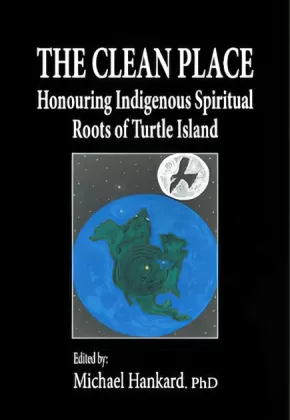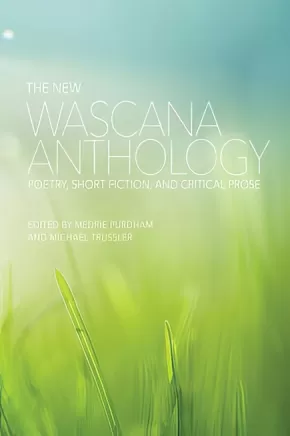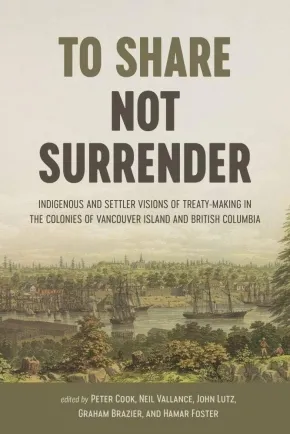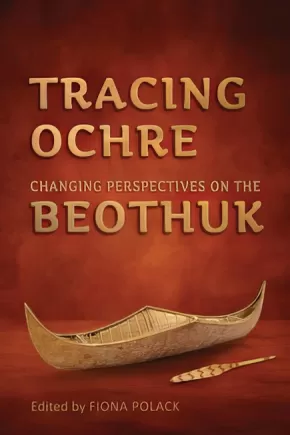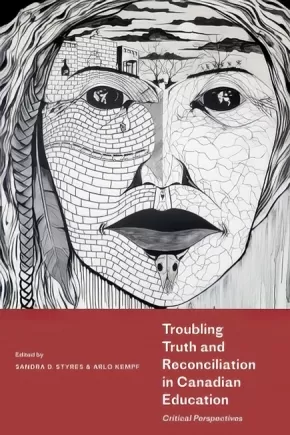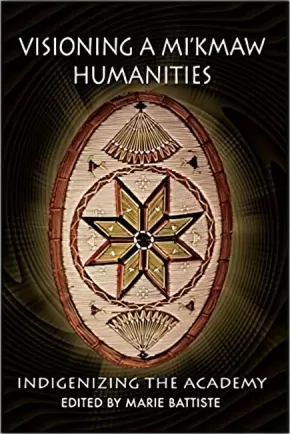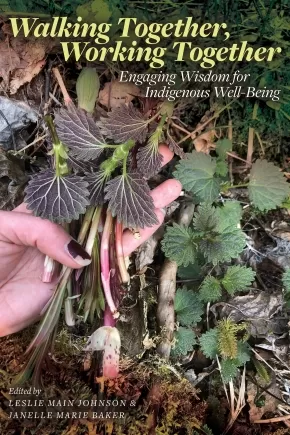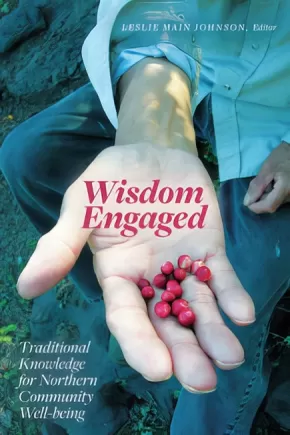Various Contributors
Books (14)
Synopsis:
A bundle of letters to activists and organizers on the frontlines in catastrophic times from Let This Radicalize You co-author Kelly Hayes.
In social movements, some heartbreaks are all but inevitable. Campaigns will be lost. Mental health crises will occur. Social ills, like gender-based violence, will manifest themselves in movement spaces. People will experience profound personal losses. Grief, alienation, and despair can grind us under. Sometimes, we need accompaniment. Sometimes, we need to be met where we’re at by a caring voice of experience. Read This When Things Fall Apart is a care package for activists and organizers building power under fascistic, demoralizing conditions. It’s an outstretched hand, offering history lessons, personal anecdotes, and practical advice about how to navigate the woes of justice work. A survival guide for the heart, this is a book for activists to keep close, and to share with co-strugglers in need.
Personal, reflective, and hopeful, Read This When Things Fall Apart harnesses the writers' individual moments of despair into living, breathing wisdom that chips away at the supposed inevitability of fascist life. Restorative like a letter from a trusted friend and invigorating like a story from a mentor, the book is an indispensable companion for all of us navigating challenging times. Featuring letters from Mariame Kaba, Ashon Crawley, Leanne Betasamosake Simpson, Leah Lakshmi Piepzna-Samarasinha, Eman Abdelhadi, Brian Merchant, and more.
Reviews
"This marvelous book is essential reading for the times we find ourselves in."—Chanda Prescod-Weinstein, author of The Disordered Cosmos: A Journey into Dark Matter, Spacetime, and Dreams Deferred
"What a gift! We all need these letters, not just in times of crisis or defeat. It is the only book you’ll hold that will hold you, free you, permit you to fail, rest, retreat, grieve, live, laugh, fight, and heal—to be human. This book must never go out of print." —Robin D. G. Kelley, author of Freedom Dreams: The Black Radical Imagination
"Read this When Things Fall Apart is a balm of these dark times. This is the book I wish I'd had as a young organizer. It is a necessary text that sent me through the full kaleidoscope of emotions—spanning rage, laughter, and sadness—but more importantly, helped ground me in times of crisis and unrelenting brutality." —Robyn Maynard, co-author of Rehearsals for Living
“If you need an antidote to despair, this book is for you. It’s a repository of fortifying collective wisdom, a tonic for our troubled times. The letters Kelly Hayes has collected offer vital insights amid the darkness, shrewd strategic advice for aspiring change-makers, and a reminder none of us are in the fight alone.” —Astra Taylor, co-author of Solidarity: The Past, Present, and Future of a World-Changing Idea
“For years I've had a saying: resist the pleasures of doom. It can feel perversely good to tell ourselves that the situation is so bad we simply can't do anything, to throw up our hands and give up. This book is an antidote to the pleasures of doom—it offers the deeper, more sustaining pleasure of solidarity, in beautiful specificity, from committed organizers in a variety of movements. They have felt despair, stared into the void of defeat, and they share concrete advice about the ways we can keep going when all feels hopeless. This book is a profound act of care.” —Sarah Jaffe, author of From the Ashes: Grief and Revolution in a World on Fire
“Read this When Things Fall Apart: Letters to Activists in Crisis is a signpost for activists who feel unsettled about themselves and the future. The contributors offer their truths and wisdom with raw vulnerability. Read this When Things Fall Apart is a resource for anyone who believes hope will guide us through the darkest of times.” —Alice Wong, editor of Disability Intimacy: Essays on Love, Care, and Desire
"These letters are like seeds in a pomegranate—gorgeous gems full of nourishment, nestled together, shaped by one another, juicy, sweet and alive. The intimacy and urgency of these wise messages, written by people who have given so much to our movements and seen so much, is just what we need right now, in harrowing times, to help new people cross the threshold to collective action and to bolster the spirits of all who continue to press on, against difficult odds. I cannot wait to give this book to my students and the people I've been working with for decades. We all need what is in here." —Dean Spade, author of Mutual Aid: Building Solidarity During This Crisis (and the Next)
“In this time of monsters burying us in grief and despair, this extraordinary collection is a steady hand with advice, analysis and affirmation. Each generous and generative letter centers our love for ourselves and our people as methodology. This book is a compelling reminder that we need each other as comrades and community, that we all have gifts to contribute to movements, and that—through uncertainty and one million experiments—we will win.” —Harsha Walia, author of Border and Rule: Global Migration, Capitalism, and the Rise of Racist Nationalism
Additional Information
172 pages | 5.50" x 8.50" | Paperback
Synopsis:
While cities like Winnipeg, Minneapolis, Saskatoon, Rapid City, Edmonton, Missoula, Regina, and Tulsa are places where Indigenous marginalization has been most acute, they have also long been sites of Indigenous placemaking and resistance to settler colonialism.
Although such cities have been denigrated as “ordinary” or banal in the broader urban literature, they are exceptional sites to study Indigenous resurgence. The urban centres of the continental plains have featured Indigenous housing and food co-operatives, social service agencies, and schools. The American Indian Movement initially developed in Minneapolis in 1968, and Idle No More emerged in Saskatoon in 2013.
The editors and authors of Settler City Limits, both Indigenous and settler, address urban struggles involving Anishinaabek, Cree, Creek, Dakota, Flathead, Lakota, and Métis peoples. Collectively, these studies showcase how Indigenous people in the city resist ongoing processes of colonial dispossession and create spaces for themselves and their families.
Working at intersections of Indigenous studies, settler colonial studies, urban studies, geography, and sociology, this book examines how the historical and political conditions of settler colonialism have shaped urban development in the Canadian Prairies and American Plains. Settler City Limits frames cities as Indigenous spaces and places, both in terms of the historical geographies of the regions in which they are embedded, and with respect to ongoing struggles for land, life, and self-determination.
Contributors: Chris Andersen, Nicholas Brown, Elizabeth Comack, Heather Dorries, Nick Estes, Adam Gaudry, Robert Henry, David Hugill, Sharmeen Khan, Corey Laberge, Brenda Macdougall, Tyler McCreary, Lindsey Claire Smith, Michelle Stewart, Zoe Todd, Julie Tomiak
Reviews
“Settler City Limits breaks ground, shattering the powerful authoritative structures of racism that have dichotomized rural and urban space, and Indigenous peoples’ relation to these as a central force sustaining and fortifying settler colonialism.” – Heather A. Howard-Bobiwash, Associate Professor of Anthropology, Michigan State University, and Affiliated Faculty Centre for Indigenous Studies, University of Toronto
Educator Information
Table of Contents
Introduction
Part 1 Land and Politics
Part 2 Contestation, Resistance, Solidarities
Part 3 Policing and Social Control
Part 4 Life and Death
Additional Information
368 pages | 6.00" x 9.00"
Authenticity Note: Contains contributions from both Indigenous peoples and settlers.
Synopsis:
Dispatches of radical political engagement from people taking a stand against the Dakota Access Pipeline.
It is prophecy. A Black Snake will spread itself across the land, bringing destruction while uniting Indigenous nations. The Dakota Access Pipeline is the Black Snake, crossing the Missouri River north of the Standing Rock Indian Reservation. The oil pipeline united communities along its path—from North Dakota, South Dakota, Iowa, and Illinois—and galvanized a twenty-first-century Indigenous resistance movement marching under the banner Mni Wiconi—Water Is Life! Standing Rock youth issued a call, and millions around the world and thousands of Water Protectors from more than three hundred Native nations answered. Amid the movement to protect the land and the water that millions depend on for life, the Oceti Sakowin (the Dakota, Nakota, and Lakota people) reunited. A nation was reborn with renewed power to protect the environment and support Indigenous grassroots education and organizing. This book assembles the multitude of voices of writers, thinkers, artists, and activists from that movement.
Through poetry and prose, essays, photography, interviews, and polemical interventions, the contributors, including leaders of the Standing Rock movement, reflect on Indigenous history and politics and on the movement’s significance. Their work challenges our understanding of colonial history not simply as “lessons learned” but as essential guideposts for current and future activism.
Contributors: Dave Archambault II, Natalie Avalos, Vanessa Bowen, Alleen Brown, Kevin Bruyneel, Tomoki Mari Birkett, Troy Cochrane, Michelle L. Cook, Deborah Cowen, Andrew Curley, Martin Danyluk, Jaskiran Dhillon, Roxanne Dunbar-Ortiz, Liz Ellis, Nick Estes, Marcella Gilbert, Sandy Grande, Craig Howe, Elise Hunchuck, Michelle Latimer, Layli Long Soldier, David Uahikeaikalei‘ohu Maile, Jason Mancini, Sarah Sunshine Manning, Katie Mazer, Teresa Montoya, Chris Newell, The NYC Stands with Standing Rock Collective, Jeffrey Ostler, Will Parrish, Shiri Pasternak, endawnis Spears, Alice Speri, Anne Spice, Kim TallBear, Mark L. Tilsen, Edward Valandra, Joel Waters, Tyler Young.
Reviews
"As our songs and prayers echo across the prairie, we need the public to see that in standing up for our rights, we do so on behalf of the millions of Americans who will be affected by this pipeline."—David Archambault II, from the interior
"There is no alternative to water. There is no alternative to this Earth. This fight has become my life, and it’s not over. I think this is only the beginning for me, for all of us. Do you want a future for your children and grandchildren? If you want them to have a future then stand with Standing Rock because this is just the beginning of a revolution."—Zaysha Grinnell, from the interior
"We will put our best warriors in the front. We are the vanguard. We are the Hunkpapa Lakota. That means the horn of the buffalo. That’s who we are. We are protectors of our nation of Oceti Sakowin, the Seven Council Fires. Know who we are."—Phyllis Young
Additional Information
448 pages | 7.00" x 9.00"
Synopsis:
Within Turtle Island Indigenous people know that its spiritual centre is the ultimate mover within everything we do and are surrounded by. The Clean Place: Honouring Indigenous Spiritual Roots of Turtle Island illuminates the strong connection Indigenous people have with the land and the importance of a paradigm shift worldwide toward sustainable ways of thinking and being. The voices and perspectives of the writers weave traditional teachings, spirituality, and messages of hope, change, and transformation.
Reviews
"Hankard’s compilation takes us on a journey throughout Turtle Island and beyond, across sacred oceans to the ancestral homelands of our relatives. This journey illuminates a connecting theme of Indigenous existence on, from and with the land as a sacred being. Upon a shared reading of a chapter with my son, it was clear he embodied the teachings within – he was doing his part in maintaining the Clean Place." - Cindy Peltier, PhD, Chair Indigenous Education Nipissing University
Educator Information
Table of Contents
Dedication
Acknowledgement
Gchi-Biimskogaabiwiding
Introduction
Michael Hankard
1. I Still Have the Place
Lorraine Rekmans
2. Unsettling the Clean Place: Beginnings of a Philosophical Reflection
Réal Fillion
3. Giving Thanks for the Light
Ross Hoffman
4. In Place and Time: Indigenous Women’s Re-Weaving and Resistances
Laura Hall
5. The Healing Journey: Spirituality, Cultural Connection and the Significance of Aboriginal Peoples Relationship to the Land
John E. Charlton & John G. Hansen
6. Honouring Papatuanuku: Honouring Mother Earth
Taima Moeke-Pickering
7. Stewards of the Sacred
Cynthia Landrum
8. A Buffalo’s Breath on a Cold Winter Morning
Michael Hankard
9. Wahi Pana: A Hawaiian Sense of Place and Relationship to the Land
Umi Perkins
10. The Land is One with Us, and We are One with the Land: A Personal Journal
Emily Faries
11. Caring for Past/Present/Future Through Anishinabe Photography on the Land
Celeste Pedri-Spade
12. Washed ‘Clean’ in Zimbabwe: The Dzivaguru Creation Story
Collis G. Machoko
13. Reflections on Urban Connections to Land and Ceremony: Uncovering the Virtues of Creativity, Cultural Resiliency, Flexibility and Tenacity
Barbara Waterfall
14. Biinidsa: Going Home to Clean Up
Kevin FitzMaurice
Epilogue: Clean Water in the ‘Clean Place’?
Maurice Switzer
About the Authors
Additional Information
251 pages | 6.00" x 9.00"
Synopsis:
The New Wascana Anthology is named for the Cree word "oskana," meaning "bones,"* but this anthology is no literary graveyard. It will introduce you to stories, poems, and essays that can be discussed over drinks, or used to impress friends years after leaving English 100 behind.
Offering a taster's choice of the best Canadian writing, with a special focus on Aboriginal and Prairie writers, this anthology includes pieces selected to introduce you to the English literary canon. Going back hundreds of years, the oldest poems included here have no known author, while the youngest writer is a recent university graduate.
Building on the bones of the canon (including all of Canada's Man Booker Prize-winners and newest Nobel Laureate), The New Wascana Anthology features writers such as Flannery O'Connor, Thomas King, Carmine Starnino, and Ursula K. Le Guin who will challenge your worldview. Most importantly, this anthology is about turning the page, opening your mind, and revelling in the pleasures of reading.
*The bones referred to are the bones of plains bison, a species that once numbered in the tens of millions on the Great Plains.
Educator Information
Contains works from Indigenous and non-Indigenous writers.
Table of Contents
Preface
Poetry
Anonymous
Summer is icumen in
Sir Patrick Spens
Mary Hamilton
Geoffrey Chaucer (ca. 1343–1400)
from The Canterbury Tales
Excerpts from General Prologue
Sir Thomas Wyatt (1503–1542)
The Long Love, That in My Thought Doth Harbour
Sir Walter Ralegh (ca. 1552–1618)
The Nymph’s Reply to the Shepherd
Edmund Spenser (ca. 1552–1599)
from Amoretti
30. My love is like to ice
75. One day I wrote her name
Sir Philip Sidney (1554–1586)
from Astrophel and Stella
59. Dear, why make you more of a dog than me?
Michael Drayton (1563–1631)
from Idea
61. Since there’s no help, come let us kiss and part
Christopher Marlowe (1564–1593)
The Passionate Shepherd to His Love
William Shakespeare (1564–1616)
from Sonnets
18. Shall I compare thee to a summer’s day?
20. A woman’s face, with nature’s own hand painted
116. Let me not to the marriage of true minds
130. My mistress’ eyes are nothing like the sun
from As You Like It
All the world’s a stage
John Donne (1572–1631)
A Valediction: Forbidding Mourning
Death be not proud
The Bait
The Flea
Ben Jonson (1572–1637)
Epigram XXII: On My First Daughter
Epigram XLV: On My First Son
Song: To Celia
George Herbert (1593–1633)
Love (III)
John Milton (1608–1674)
When I Consider How My Light Is Spent
from Paradise Lost, Book 1
The Invocation
Anne Bradstreet (1612–1672)
Before the Birth of One of Her Children
The Author to Her Book
Andrew Marvell (1621–1678)
To His Coy Mistress
Anne Finch, Countess of Winchelsea (1661–1720)
To the Nightingale
A Letter to Daphnis, April 2, 1685
Alexander Pope (1688–1744)
The Rape of the Lock
Lady Mary Wortley Montagu (1689–1762)
Addressed to—
Thomas Gray (1716–1771)
Elegy Written in a Country Churchyard
Christopher Smart (1722–1771)
from Jubilate Agno
My Cat Jeoffry
William Blake (1757–1827)
from Songs of Innocence
The Chimney Sweeper
The Lamb
from Songs of Experience
A Poison Tree
London
The Chimney Sweeper
William Wordsworth (1770–1850)
A slumber did my spirit seal
Composed Upon Westminster Bridge, September 3, 1802
I wandered lonely as a cloud
The world is too much with us
Samuel Taylor Coleridge (1772–1834)
Kubla Khan
George Gordon, Lord Byron (1788–1824)
She Walks in Beauty
The Destruction of Sennacherib
Percy Bysshe Shelley (1792–1822)
Ozymandias
John Keats (1795–1821)
La Belle Dame Sans Merci
When I have fears that I may cease to be
Alfred, Lord Tennyson (1809–1892)
Ulysses
Robert Browning (1812–1889)
Porphyria’s Lover
My Last Duchess
Emily Brontë (1818–1848)
Remembrance
Walt Whitman (1819–1892)
When Lilacs Last in the Dooryard Bloom’d
Matthew Arnold (1822–1888)
Dover Beach
George Meredith (1828–1909)
from Modern Love
17. At dinner, she is hostess, I am host
Emily Dickinson (1830–1866)
F479. Because I could not stop for Death
F591. I heard a Fly buzz—when I died
F620. Much Madness is divinest Sense
F1096. A narrow Fellow in the Grass
F1263. Tell all the Truth but tell it slant
Lewis Carroll (1832–1898)
Jabberwocky
Thomas Hardy (1840–1928)
The Ruined Maid
The Convergence of the Twain
The Workbox
Gerard Manley Hopkins (1844–1889)
God’s Grandeur
Pied Beauty
The Windhover
A. E. Housman (1859–1936)
from A Shropshire Lad
XIX. To An Athlete Dying Young
Sir Charles G. D. Roberts (1860–1943)
Tantramar Revisited
Archibald Lampman (1861–1899)
Heat
William Butler Yeats (1865–1939)
The Second Coming
Leda and the Swan
Crazy Jane Talks with the Bishop
Edwin Arlington Robinson (1869–1935)
Miniver Cheevy
Robert Frost (1874–1963)
After Apple-Picking
Mending Wall
Nothing Gold Can Stay
The Silken Tent
William Carlos Williams (1883–1963)
The Red Wheelbarrow
This is Just to Say
Pictures from Brueghel
D. H. Lawrence (1885–1930)
Piano
Snake
Ezra Pound (1885–1972)
In a Station of the Metro
The River Merchant’s Wife: A Letter
Isaac Rosenberg (1890–1918)
Break of Day in the Trenches
Edna St. Vincent Millay (1892–1950)
Elegy before Death
What lips my lips have kissed
Wilfred Owen (1893–1918)
Dulce et Decorum Est
e.e. cummings (1894–1963)
“next to of course god america i
anyone lived in a pretty how town
F. R. Scott (1899–1985)
Lakeshore
Langston Hughes (1902–1967)
The Negro Speaks of Rivers
Harlem
A. J. M. Smith (1902–1980)
The Lonely Land
Far West
Stevie Smith (1902–1971)
Not Waving but Drowning
Earle Birney (1904–1995)
Anglo-Saxon Street
W. H. Auden (1907–1973)
Musée des Beaux-Arts
Theodore Roethke (1908–1963)
My Papa’s Waltz
A. M. Klein (1909–1972)
Heirloom
The Rocking Chair
Dorothy Livesay (1909–1996)
Green Rain
Elizabeth Bishop (1911–1979)
In the Waiting Room
Irving Layton (1912–2006)
The Birth of Tragedy
Dylan Thomas (1914–1953)
Fern Hill
Do Not Go Gentle into That Good Night
P. K. Page (1916–2010)
After Rain
Planet Earth
Robert Lowell (1917–1977)
For the Union Dead
Miriam Waddington (1917–2004)
Advice to the Young
Raymond Souster (1921–2012)
The Lilac Poem
Elizabeth Brewster (1922–2012)
The Night Grandma Died
Eli Mandel (1922–1992)
Houdini
Anne Szumigalski (1926–1999)
It Wasn’t a Major Operation
Don Coles (b. 1927)
Collecting Pictures
Robert Kroetsch (1927–2011)
Meditation on Tom Thomson
Rita Joe (1932–2007)
Axe Handles for Sale
I Lost My Talk
Sylvia Plath (1932–1963)
Daddy
Alden Nowlan (1933–1983)
The Bull Moose
Leonard Cohen (b. 1934)
A Kite Is a Victim
Suzanne
Robert Currie (b. 1937)
Young Boy, Fleeing
Glen Sorestad (b. 1937)
Ten Years
Now That I’m Up
John Newlove (1938–2003)
The Double-Headed Snake
Margaret Atwood (b. 1939)
Backdrop Addresses Cowboy
The Nature of Gothic
This Is a Photograph of Me
Seamus Heaney (1939–2013)
Bog Queen
Digging
The Names of the Hare
Patrick Lane (b. 1939)
Mountain Oysters
Gary Hyland (1940–2011)
from Arguments in the Garden of Prayer
1. So many frogs
14. The first sounds
Beth Brant (b. 1941)
for all my Grandmothers
Robert Hass (b. 1941)
Consciousness
Gwendolyn MacEwen (1941–1987)
Manzini: Escape Artist
Marie Annharte Baker (b. 1942)
Pretty Tough Skin Woman
Louise Glück (b. 1943)
Illuminations
Michael Ondaatje (b. 1943)
The Cinnamon Peeler
White Dwarfs
Dennis Cooley (b. 1944)
how there in the plaid light she played with his affections plied them spikes from his heart she stood by pliers in hand he has his pride
Craig Raine (b. 1944)
A Martian Sends a Postcard Home
Tom Wayman (b. 1945)
Did I Miss Anything?
Linda Hogan (b. 1947)
Cities Behind Glass
Lorna Crozier (b. 1948)
The Dirty Thirties
Poem about Nothing
from The Sex Lives of Vegetables
Radishes
Lettuce
Cauliflower
Beth Cuthand (b. 1949)
Four Songs for the Fifth Generation
Kathleen Wall (b. 1950)
Morning Nocturne
Joy Harjo (b. 1951)
She Had Some Horses
Gerald Hill (b. 1951)
Becoming and Going: An Oldsmobile Story
Di Brandt (b. 1952)
completely seduced
Louise Halfe (b. 1953)
She Told Me
Louise Erdrich (b. 1954)
Dear John Wayne
Indian Boarding School: The Runaways
Jacklight
Jeanette Lynes (b. 1956)
The Last Interview with Bettie Page
Anne Simpson (b. 1956)
Grammar Exercise
George Elliott Clarke (b. 1960)
Blank Sonnet
Michael Crummey (b. 1965)
Her Mark
Gregory Scofield (b. 1966)
His Flute, My Ears
Karen Solie (b. 1966)
Parasitology
Randy Lundy (b. 1967)
Bear
Ghost Dance
Stephanie Bolster (b. 1969)
To Dolly
Carmine Starnino (b. 1970)
Pepino’s Poem, “Growing Up in Naples”
Rope Husbandry
Daniel Scott Tysdal (b. 1978)
Metro
Cassidy McFadzean (b. 1989)
I smile earwide
Short Fiction
Sherman Alexie (b. 1966)
The Approximate Size of My Favourite Tumour
Margaret Atwood (b. 1939)
My Last Duchess
Sandra Birdsell (b. 1942)
Disappearances
Raymond Carver (1938–1988)
Cathedral
William Faulkner (1897–1962)
A Rose for Emily
Richard Ford (b. 1944)
Sweethearts
Charlotte Perkins Gilman (1860–1935)
The Yellow Wall-paper
James Joyce (1882–1941)
Araby
Thomas King (b. 1943)
A Seat in the Garden
Ursula K. Le Guin (b. 1929)
The Ones Who Walk Away from Omelas
Alexander MacLeod (b. 1972)
Miracle Mile
Alistair MacLeod (1936-2014)
The Boat
Katherine Mansfield (1888–1923)
The Garden-Party
Yann Martel (b. 1963)
The Facts Behind the Helsinki Roccamatios
Rohinton Mistry (b. 1952)
Swimming Lessons
Ken Mitchell (b. 1940)
The Great Electrical Revolution
Alice Munro (b. 1931)
The Bear Came over the Mountain
Flannery O’Connor (1925–1964)
A Good Man Is Hard to Find
Edgar Allan Poe (1809–1849)
The Cask of Amontillado
Eden Robinson (b. 1968)
Traplines
Gloria Sawai (1932–2011)
The Day I Sat with Jesus on the Sundeck and a Wind Came Up and Blew My Kimono Open and He Saw My Breasts
Guy Vanderhaeghe (b. 1951)
Dancing Bear
Dianne Warren (b. 1950)
Bone Garden
Critical Prose
Stephen Jay Gould (1941–2002)
Evolution as Fact and Theory
Trevor Herriot (b. 1958)
from Grass, Sky, Song: Promise and Peril in the World of Grassland Birds
A Way Home
Barbara Kingsolver (b. 1955)
Setting Free the Crabs
Don McKay (b. 1942)
Baler Twine: Thoughts on Ravens, Home, and Nature Poetry
Jonathan Swift (1667–1745)
A Modest Proposal
Copyright Notices
Index of Authors and Titles
Index of First Lines of Poetry
Additional Information
554 pages | 6.00" x 9.00" | Paperback
Synopsis:
Too often, history and knowledge of Indigenous-settler conflict over land take the form of confidential reports prepared for court challenges. To Share, Not Surrender offers an entirely new approach, opening scholarship to the public and augmenting it with First Nations community expertise.
The collection appraises the historical and present-day relevance of treaty-making in the colonies of Vancouver Island and British Columbia. The authors take us back to when James Douglas and his family relocated to Fort Victoria on Vancouver Island in 1849, critically tracing the transition from treaty-making in the colony of Vancouver Island to reserve formation in the colony of British Columbia. Informed by cel’aṉ’en – “our culture, the way of our people” – this multivocal work explicitly addresses the tensions between academic research, Indigenous knowledge, and local experience. The collection includes essays, translations/interpretations of the treaties into the SENĆOŦEN and Lekwungen languages, and contributions by participants of the Songhees, Huu-ay-aht, and WSANEC peoples.
The chapters demonstrate that the continuing inability to arrive at equitable land-sharing arrangements stem from a fundamental absence of will with respect to accommodating First Nations world views. To Share, Not Surrender is an attempt to understand why, and thus to advance the urgent task of reconciliation in Canada.
The multiple perspectives presented in this important work will find equally diverse audiences: Canadian historians, scholars and students of Indigenous studies, ethno-historians, legal historians, lawyers practising in the areas of Aboriginal law, and researchers preparing historical reports on First Nation land claims.
Reviews
"The past is with us and history matters. Read To Share Not Surrender as a great example of how there can be different interpretations of the past." — Robin Fisher, The British Columbia Review
"After James Douglas negotiated treaties on Vancouver Island, he never made another in BC. Why not? Some of the foremost experts in the field work here to answer this question, analyzing Douglas’s policies and their lasting impact on BC First Nations’ continuing battle with rights and title." — Daniel Boxberger, professor emeritus, anthropology, Western Washington University
"The connection that To Share, Not Surrender makes between the events of the 1850s and 1860s and the modern-day treaty process in British Columbia is extremely valuable. It helps the reader develop a better understanding, not only of colonial history, but also of the relevance of Indigenous law to territorial claims today." — Kent McNeil, author of Flawed Precedent: The St. Catherine’s Case and Aboriginal Title
Educator Information
Contributors: Keith Thor Carlson, Robert Clifford, Emchayiik Robert Dennis Sr., STOLCEL John Elliott Sr., Elmer George, Stephen Hume, Maxine Hayman Matilpi, Kevin Neary, Adele Perry, Sarah Pike, Chief Ron Sam, and Laura Spitz
Additional Information
330 pages | 6.00" x 9.00" | Paperback
Synopsis:
The supposed extinction of the Indigenous Beothuk people of Newfoundland in the early nineteenth century is a foundational moment in Canadian history. Increasingly under scrutiny, non-Indigenous perceptions of the Beothuk have had especially dire and far-reaching ramifications for contemporary Indigenous people in Newfoundland and Labrador.
Tracing Ochre reassesses popular beliefs about the Beothuk. Placing the group in global context, Fiona Polack and a diverse collection of contributors juxtapose the history of the Beothuk with the experiences of other Indigenous peoples outside of Canada, including those living in former British colonies as diverse as Tasmania, South Africa, and the islands of the Caribbean. Featuring contributions of Indigenous and non-Indigenous thinkers from a wide range of scholarly and community backgrounds, Tracing Ochre aims to definitively shift established perceptions of a people who were among the first to confront European colonialism in North America.
Synopsis:
Troubling Truth and Reconciliation in Canadian Education offers a series of critical perspectives concerning reconciliation and reconciliatory efforts between Canadian and Indigenous peoples. Indigenous and non-Indigenous scholars address both theoretical and practical aspects of troubling reconciliation in education across various contexts with significant diversity of thought, approach, and socio-political location. Throughout, the work challenges mainstream reconciliation discourses. This timely, unflinching analysis will be invaluable to scholars and students of Indigenous studies, sociology, and education.
Contributors: Daniela Bascuñán, Jennifer Brant, Liza Brechbill, Shawna Carroll, Frank Deer, George J. Sefa Dei (Nana Adusei Sefa Tweneboah), Lucy El-Sherif, Rachel yacaaʔał George, Celia Haig-Brown, Arlo Kempf, Jeannie Kerr, Ruth Green, David Newhouse, Amy Parent, Michelle Pidgeon, Robin Quantick, Jean-Paul Restoule, Toby Rollo, Mark Sinke, Sandra D. Styres, Lynne Wiltse, Dawn Zinga
Reviews
"This is crucially important work at this time, as universities, provincial education boards, and school districts grapple with their responses to the TRC. The contributors to Troubling Truth and Reconciliation in Canadian Education continue dialogues around reconciliation, decolonization, and Indigenization in schools at every level across Canada and offer real and actionable insights for educational leaders and teachers." - Shannon C. Leddy, University of British Columbia
"Troubling Truth and Reconciliation in Canadian Education is a significant contribution in this era of the post-TRC, the Calls to Action, the MMIWG inquiry report, and the ongoing difficulties and legacies of systemic racism/colonialism against Indigenous peoples in Canadian institutions." - Lisa Korteweg, Lakehead University
Educator Information
Table of Contents
vii Foreword
JAN HARE
xiii Acknowledgements
xv A Troubling Place to Start: Reconciliation in Collapse
ARLO KEMPF, SANDRA D. STYRES, LIZA BRECHBILL AND LUCY EL-SHERIF
I
Theoretical Perspectives on (Ir)reconciliation: Polishing the Silver Covenant Chain
1 | Discovering Truth in the Post-TRC Era: Morality and Spirituality Discourses in the Reconciliatory Journeys of Schools
FRANK DEER
2 | Indigenous Resiliency, Renewal, and Resurgence in Decolonizing Canadian Higher Education
MICHELLE PIDGEON
3 | Uncomfortable Realities: Reconciliation in Higher Education
DAWN ZINGA
4 | Contested Knowledges: Indigeneity, Resistance, and Black Theorizing in Academia
GEORGE J. SEFA DEI (NANA ADUSEI SEFA TWENEBOAH)
5 | Some of Us Are More Canadian Than Others: Pedagogies of Citizenship and Learning Racialized Settlerhood
LUCY EL-SHERIF AND MARK SINKE
6 | The Performativity of Reconciliation: Illusory Justice and the Site C Dam
RACHEL YACAAʔAŁ GEORGE
7 | Beyond Curricula: Colonial Pedagogies in Public Schooling
TOBY ROLLO
II
Reconceptualizing Reconciliation in Education: Teaching and Learning in Right Relation
8 | Reconciliation and Relational Ethics in Education
SANDRA D. STYRES AND ARLO KEMPF
9 | Exploring Tensions in Taking Up the Call for Reconciliation in Teacher Education
LYNNE WILTSE
10 | Troubling Trespass: Moving Settler Teachers Toward Decolonization
DANIELA BASCUÑÁN, MARK SINKE, SHAWNA M. CARROLL, AND JEAN-PAUL RESTOULE
11 | Talking It Through, Talking Through It: A Dialogue on Indigenizing Education
CELIA HAIG-BROWN AND RUTH GREEN
12 | Recalling the Spirit and Intent of Indigenous Literatures
JENNIFER BRANT
13 | Teaching Indigenous Studies in a Time of Reconciliation: An Anticolonial Approach Toward Postcolonial Awareness
DAVID NEWHOUSE AND ROBIN QUANTICK
14 | Contemporary Colonialism and Reconciliation in Higher Education: A Decolonial Response Through Relationality
JEANNIE KERR AND AMY PARENT
Contributors
Additional Information
328 pages | 6.00" x 9.00" | Paperback
Synopsis:
Since the Renaissance, liberal education has as its core tradition a Eurocentric multidisciplinary humanism — the study of literature, art, philosophy and history — grounded in ancient Greek and Latin texts.
In what may be termed cognitive imperialism, the academy has largely ignored Aboriginal perspectives of humanity. In this volume, Mi'kmaw and non-Mi'kmaw scholars, teachers and educators posit an interdisciplinary approach to explicate and animate a Mi'kmaw Humanities.
Drawing on the metaphor of a basket as a multilayered metaphor for engaging postsecondary institutions, these essays reveal historical, educational, legal, philosophical, visual and economic frameworks to develop a knowledge protocol that can direct, transform and enrich conventional Humanities within the complex dynamics of territory, energy, stewardship, alterity and consciousness.
Additional Information
300 pages | 6.00" x 9.00" | Paperback
Synopsis:
Written by leading Indigenous and non-Indigenous scholars, Voicing Identity examines the issue of cultural appropriation in the contexts of researching, writing, and teaching about Indigenous peoples. This book grapples with the questions of who is qualified to engage in these activities and how this can be done appropriately and respectfully.
The authors address these questions from their individual perspectives and experiences, often revealing their personal struggles and their ongoing attempts to resolve them. There is diversity in perspectives and approaches, but also a common goal: to conduct research and teach in respectful ways that enhance understanding of Indigenous histories, cultures, and rights, and promote reconciliation between Indigenous and non-Indigenous peoples.
Bringing together contributors with diverse backgrounds and unique experiences, Voicing Identity will be of interest to students and scholars studying Indigenous issues as well as anyone seeking to engage in the work of making Canada a model for just relations between the original peoples and newcomers.
Reviews
"This book is a beautiful and fearless gift to those willing to be challenged about popular public claims regarding a range of cultural appropriation issues. The editors and contributors have created a rich and contextual resource to generate critical conversations about forms of lateral violence and unproductive silencing, and about our need for ‘deliberate unknowing’ so we have space for real learning, practical institutional change, and inclusivity. This collection invites us to ask how ‘Raven steals the sun,’ making sure ‘we look both ways’ when reconsidering history, and thinking about the ‘we’ and the ‘ours.’"— Val Napoleon, IPC, Cree, Saulteau First Nation, Acting Dean and Professor and Law Foundation Chair of Indigenous Justice and Governance, Faculty of Law, University of Victoria
"A highly stimulating and engaging contribution to a much-debated topic – all the more absorbing because the authors come from a wide range of backgrounds and ground their contributions in their personal experiences. Essential reading for anyone with an interest in the subject."— Brian Slattery, Professor Emeritus, Osgoode Hall Law School, York University
Educator Information
Table of Contents
Introduction
John Borrows and Kent McNeil
1. Su-taxwiye: Keeping My Name Clean
Sarah Morales
2. At the Corner of Hawks and Powell: Settler Colonialism, Indigenous People, and the Conundrum of Double Permanence
Keith Carlson
3. Look at Your "Pantses": The Art of Wearing and Representing Indigenous Culture as Performative Relationship
Aimée Craft
4. Indigenous Legal Traditions, De-sacralization, Re-sacralization, and the Space for Not-Knowing
Hadley Friedland
5. Mino-audjiwaewin: Choosing Respect, Even in Times of Conflict
Lindsay Borrows
6. How Could You Sleep When Beds Are Burning? Cultural Appropriation and the Place of Non-Indigenous Academics
Felix Hoehn
7. Who Should Teach Indigenous Law?
Karen Drake and A. Christian Airhart
8. Reflections on Cultural Appropriation
Michael Asch
9. Turning Away from the State: Cultural Appropriation in the Shadow of the Courts
John Borrows
10. Voice and Indigenous Rights
Robert Hamilton
11. Guided by Voices? Perspective and Pluralism in the Constitutional Order
Joshua Nichols
12. NONU WEL,WEL TI,Á NE TȺ,EȻEȽ: Our Canoe Is Really Tippy
kQwa'st'not and Hannah Askew
13. Sharp as a Knife: Judge Begbie and Reconciliation
Hamar Foster
14. On Getting It Right the First Time: Researching the Constitution Express
Emma Feltes
15. Confronting Dignity Injustices
Sa’ke’j Henderson
Contributors
Additional Information
336 pages | 6.00" x 9.00" | 5 black and white illustrations | Paperback
Synopsis:
This collection takes a holistic view of well-being, seeking complementarities between Indigenous approaches to healing and Western biomedicine. Topics include traditional healers and approaches to treatment of disease and illness; traditional knowledge and intellectual property around medicinal plant knowledge; the role of diet and traditional foods in health promotion; culturally sensitive approaches to healing work with urban Indigenous populations; and integrating biomedicine, alternative therapies, and Indigenous healing in clinical practice. Throughout, the voices of Elders, healers, physicians, and scholars are in dialogue to promote Indigenous community well-being through collaboration. This book will be of interest to scholars in Indigenous Studies, medicine and public health, medical anthropology, and anyone involved with care delivery and public health in Indigenous communities.
Contributors: Darlene Auger, Dorothy Badry, Margaret David, Meda DeWitt, Hal Eagletail, Gary L. Ferguson III, Marc Fonda, Annie Goose, Angela Grier (Pioohksoopanskii), Leslie Main Johnson, Allison Kelliher, Patrick Lightning, Mary Maje, Maria Mayan, Ruby E. Morgan, Richard T. Oster, Ann Maje Raider, Camille (Pablo) Russell, Ginetta Salvalaggio, Ellen L. Toth, Harry Watchmaker
Additional Information
272 pages | 6.00" x 9.00" | Paperback
Synopsis:
Indigenous and non-Indigenous scholars forward child welfare issues currently impacting Indigenous children in Canada.
Developed by the Prairie Child Welfare Consortium, this edited collection brings together accomplished Indigenous and non-Indigenous scholars from the prairie provinces to forward critical research about a range of contemporary child welfare issues currently impacting Indigenous children in Canada.
Centering Indigenous knowledge and working to decolonize child welfare, contributors address the over-representation of Indigenous children in the child welfare system, the un-met recommendations of the TRC, the connections between colonialism and fetal alcohol spectrum disorders, the impact of Bill C-92, and more.
Contributors include: Jason Albert, Dorothy Badry, Cindy Blackstock, Elder Mae Louise Campbell, Peter Choate, Linda Dano-Chartrand, Michael Doyle, Koren Lightning Earle, Arlene Eaton Erickson, Yahya El-Lahib, Hadley Friedland, Don Fuchs, Del Graff, Jennifer Hedges, Bernadette Iahtail, Jennifer King, Brittany Mathews, Eveline Milliken, Kelly Provost—Ekkinnasoyii (Sparks in a Fire), Christina Tortorelli, Gabrielle Lindstrom Tsapinaki, Susannah Walker, and Robyn Williams
Reviews
“A great contribution for all of us who conduct research, teach, and work directly in the field of Indigenous child welfare practice.”—Jeannine Carrière, author of Calling Our Families Home: Métis Peoples’ Experiences with Child Welfare
Additional Information
288 pages | 5.00" x 7.50" | Paperback
Synopsis:
Wisdom Engaged demonstrates how traditional knowledge, Indigenous approaches to healing, and the insights of Western bio-medicine can complement each other when all voices are heard in a collaborative effort to address changes to Indigenous communities’ well-being. In this collection, voices of Elders, healers, physicians, and scholars are gathered in an attempt to find viable ways to move forward while facing new challenges. Bringing these varied voices together provides a critical conversation about the nature of medicine; a demonstration of ethical commitment; and an example of successful community relationship building.
Contributors: Alestine Andre, Janelle Marie Baker, Robert Beaulieu, Della Cheney, Mida Donnessey, Mabel English, Christopher Fletcher, Fort McKay Berry Group, Annie B. Gordon, Celina Harpe, Leslie Main Johnson, Thea Luig, Art Mathews, Linda G. McDonald, Ruby E. Morgan, Keiichi Omura, Evelyn Storr (Inuvialuit Regional Corporation), Mary Teya, Nancy J. Turner, Walter Vanast, Darlene Vegh
Educator Information
Keywords: Traditional Knowledge, Well-Being, Health
Subjects and Course Areas: Social Science, History, Indigenous Studies, Anthropology, Health and Medicine
Additional Information
|
Authenticity Note: This book has received the Authentic Indigenous Text label because of its contributions from Indigenous peoples. Non-Indigenous contributors are also included.
Synopsis:
Poets, both settler and Indigenous, pay tribute to trees through reflections on the past, connections to the present, and calls for the protection of our future.
In Worth More Standing: Poets and Activists Pay Homage to Trees, celebrated poets and activists pay homage to the ghosts of lost forests and issue a rallying cry to protect remaining ancient giants and restore uncolonized spaces.
Themes of connection, ecology, grief, and protection are explored through poems about trees and forests written by an impressive number of influential poets, several of whom have attended the recent Fairy Creek blockades and still others who defended BC's old growth trees in Clayoquot Sound nearly 30 years ago.
Contributors include ninth Parliamentary Poet Laureate Louise Bernice Halfe-Sky Dancer, GG winner Arleen Paré, Canadian icon bill bissett, Griffin Poetry Prize winner Eve Joseph, ReLit Award winner Patrick Friesen, Joy Kogawa, Fiona Tinwei Lam, Harold Rhenisch, Jay Ruzesky, John Barton, Kate Braid, Kim Trainor, Kim Goldberg, Pamela Porter, Patricia and Terence Young, Russell Thornton, Sonnet L’Abbé, Susan McCaslin, Susan Musgrave, Tom Wayman, Trevor Carolan, Yvonne Blomer, Zoe Dickinson and the late Pat Lowther.
Reviews
"This anthology grounds us in the earth's daily miracles, also known as trees, reminding us not to take them for granted. These poems acknowledge how we rely on and are part of a life force much bigger and wiser than us, giving us glimpses into the sacredness that trees make as they unconditionally transform sunlight into 'nourishing air.' From love to grief to gratitude to awe, this collection gives us lessons in the language of trees, crucial lexicons with which to navigate climate emergency." -Rita Wong, activist-poet, author of Current, Climate: The Poetry of Rita Wong
"In this eclectic grove of poems written and gathered on the body of trees, poets inflect, root, bend towards the mythopoetic, listening with love to arboreality, walking the path towards tree immersion. 'Make no mistake, I saw them relax their limbs and droop. Settling into their dreams.' A language that will always mystify and sustain us. Enjoy this collection and touch wood. 'tree, tell me what have you done with death.' 'today i ate chainsaws for breakfast.'" -Mona Fertig, editor of Love of the Salish Sea Islands and 111 West Coast Literary Portraits
"The tree is in the midst of an intellectual renaissance, judging by all the books on the lifeways, politics and communicative tendencies of networked forests. But poets have always been a People of the Tree, and the arboreal fund gathered in Worth More Standing covers the roots and branches of the entwined process of 'becoming both human and tree.' Our fate and the fate of forests have never been more entangled. This is a gorgeous and necessary collection, to be returned to again and again."-Governor General's Award-nominated poet Stephen Collis
"A masterpiece in cultural diversity unified with a call to action, Worth More Standing is a celebratory awakening to all Earth Citizens to see trees as far more valuable than in board feet of lumber. Our unified purpose must be to honour the old growth as we would our ancestors. Such forests and trees have been with us as long as we have been human. Their destruction means the loss of an essential component of our humanity." -Paul Stamets, award-winning mycologist, author, and bee protector
Additional Information
240 pages | 6.00" x 9.00" | Paperback
Authenticity Note: Not all of this work's contributors are Indigenous.

